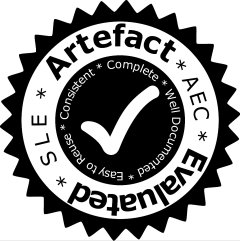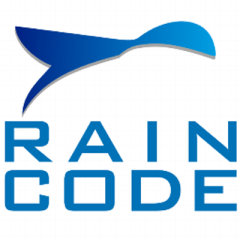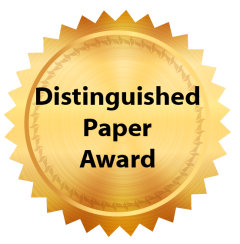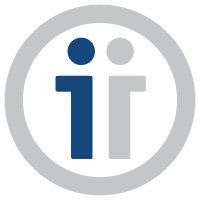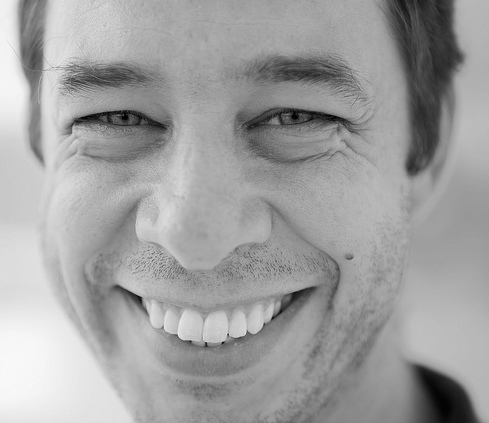Software Language Engineering (SLE) is the application of systematic, disciplined, and measurable approaches to the development, use, deployment, and maintenance of software languages. The term “software language” is used broadly, and includes: general-purpose programming languages; domain-specific languages (e.g. BPMN, Simulink, Modelica); modeling and metamodeling languages (e.g. SysML and UML); data models and ontologies (e.g. XML-based and OWL-based languages and vocabularies).
Mon 31 Oct
10:30 - 12:10: SLE - Grammars and Parsing at Zürich 2 Chair(s): Terence ParrUniversity of San Francisco, USA | ||||||||||||||||||||||||||||||||||||||||||
| 10:30 - 10:40 Day opening | ||||||||||||||||||||||||||||||||||||||||||
| 10:40 - 11:05 Talk | Zirun ZhuNational University SOKENDAI, Japan, Yongzhe ZhangNational University SOKENDAI, Japan, Hsiang-Shang ‘Josh’ KoNational Institute of Informatics, Pedro MartinsUniversity of California at Irvine, USA, João SaraivaUniversity of Minho, Portugal, Zhenjiang HuNational University SOKENDAI, Japan DOI | |||||||||||||||||||||||||||||||||||||||||
| 11:05 - 11:30 Talk | Nicolas LaurentUniversité Catholique de Louvain, Belgium, Kim MensUniversité Catholique de Louvain, Belgium DOI Pre-print | |||||||||||||||||||||||||||||||||||||||||
| 11:30 - 11:45 Talk | Juha-Pekka TolvanenMetaCase, Finland DOI Pre-print Media Attached | |||||||||||||||||||||||||||||||||||||||||
| 11:45 - 12:10 Talk | Markus Völteritemis, Germany, Tamás Szabóitemis AG / TU Delft, Sascha Lissonitemis AG, Bernd Kolbitemis AG, Sebastian ErdwegDelft University of Technology, Netherlands, Thorsten BergerChalmers University of Technology, Sweden DOI Pre-print Media Attached | |||||||||||||||||||||||||||||||||||||||||
| 13:30 - 13:55 Talk | Daniel SeyboldUlm University, Germany, Jörg DomaschkaUlm University, Germany, Alessandro RossiniSINTEF, Norway, Christopher B. HauserUlm University, Germany, Frank GriesingerUlm University, Germany, Athanasios TsitsipasUlm University, Germany DOI | |||||||||||||||||||||||||||||||||||||||||
| 13:55 - 14:20 Talk | Salvador MartínezOpen University of Catalonia, France, Jokin GarcíaIK4-IKERLAN Research Center, Spain, Jordi CabotOpen University of Catalonia, Spain DOI | |||||||||||||||||||||||||||||||||||||||||
| 14:20 - 14:45 Talk | DOI Media Attached | |||||||||||||||||||||||||||||||||||||||||
| 14:45 - 15:00 Talk | Erwan BousseTU Vienna, Austria, Thomas DegueuleInria, France, Didier VojtisekInria, France, Tanja MayerhoferTU Vienna, Austria, Julien DeAntoni, Benoit CombemaleUniversity of Rennes 1, France DOI Pre-print Media Attached File Attached | |||||||||||||||||||||||||||||||||||||||||
15:40 - 17:20: SLE - Domain-Specific Languages at Zürich 2 Chair(s): Jordi CabotOpen University of Catalonia, Spain | ||||||||||||||||||||||||||||||||||||||||||
| 15:40 - 16:05 Talk | DOI Media Attached | |||||||||||||||||||||||||||||||||||||||||
| 16:05 - 16:30 Talk | DOI Media Attached | |||||||||||||||||||||||||||||||||||||||||
| 16:30 - 16:55 Talk | Tanja MayerhoferTU Vienna, Austria, Manuel WimmerTU Vienna, Austria, Antonio VallecilloUniversity of Málaga, Spain DOI Media Attached | |||||||||||||||||||||||||||||||||||||||||
| 16:55 - 17:10 Talk | Thomas KühnTU Dresden, Germany, Kay BierzynskiTU Dresden, Germany, Sebastian RichlyTU Dresden, Germany, Uwe AßmannTU Dresden, Germany DOI Media Attached | |||||||||||||||||||||||||||||||||||||||||
| 17:10 - 17:20 Day closing | Emilie BallandSensational AG, Daniel Varro, Vadim ZaytsevRaincode, Belgium, Dimitris KolovosUniversity of York | |||||||||||||||||||||||||||||||||||||||||
Tue 1 Nov
08:30 - 10:00: SLE - SLE Keynote at Zürich 2 Chair(s): Tijs van der StormCWI & University of Groningen | ||||||||||||||||||||||||||||||||||||||||||
| 08:30 - 10:00 Talk | Robby FindlerNorthwestern University Link to publication Media Attached | |||||||||||||||||||||||||||||||||||||||||
10:30 - 12:10: SLE - Development Environments at Zürich 2 Chair(s): Anthony SloaneMacquarie University, Australia | ||||||||||||||||||||||||||||||||||||||||||
| 10:30 - 10:55 Talk | DOI Pre-print Media Attached File Attached | |||||||||||||||||||||||||||||||||||||||||
| 10:55 - 11:20 Talk | Sven KeidelDelft University of Technology, Netherlands, Wulf PfeifferTU Darmstadt, Germany, Sebastian ErdwegDelft University of Technology, Netherlands DOI Media Attached File Attached | |||||||||||||||||||||||||||||||||||||||||
| 11:20 - 11:45 Talk | Luis Eduardo de Souza AmorimDelft University of Technology, Netherlands, Sebastian ErdwegDelft University of Technology, Netherlands, Guido WachsmuthDelft University of Technology, Netherlands, Eelco VisserDelft University of Technology, Netherlands DOI Media Attached | |||||||||||||||||||||||||||||||||||||||||
| 11:45 - 12:00 Talk | Joel LindholmLund University, Sweden, Johan ThorsbergLund University, Sweden, Görel HedinLund University, Sweden DOI Media Attached | |||||||||||||||||||||||||||||||||||||||||
13:30 - 15:10: SLE - Language Validation at Zürich 2 Chair(s): Ralf LämmelUniversity of Koblenz-Landau, Germany | ||||||||||||||||||||||||||||||||||||||||||
| 13:30 - 13:55 Talk | Bart MeyersUniversity of Antwerp, Belgium, Joachim DenilUniversity of Antwerp, Belgium, István DávidUniversity of Antwerp, Belgium, Hans VangheluweUniversity of Antwerp, Canada DOI | |||||||||||||||||||||||||||||||||||||||||
| 13:55 - 14:20 Talk | Felipe Bañados SchwerterUniversity of British Columbia, Canada DOI | |||||||||||||||||||||||||||||||||||||||||
| 14:20 - 14:45 Talk | Ahmad Salim Al-SibahiIT University of Copenhagen, Denmark, Aleksandar S. DimovskiIT University of Copenhagen, Denmark, Andrzej WąsowskiIT University of Copenhagen, Denmark Link to publication DOI Pre-print Media Attached | |||||||||||||||||||||||||||||||||||||||||
| 14:45 - 15:00 Talk | Volodymyr BlagodarovRaincode, Belgium, Yves JaradinRaincode, Belgium, Vadim ZaytsevRaincode, Belgium DOI | |||||||||||||||||||||||||||||||||||||||||
| 15:40 - 16:05 Talk | Amine Benelallam, Massimo TisiAtlanMod, France, Jesús Sánchez CuadradoAutonomous University of Madrid, Spain, Juan de LaraAutonomous University of Madrid, Spain, Jordi CabotOpen University of Catalonia, Spain DOI | |||||||||||||||||||||||||||||||||||||||||
| 16:05 - 16:30 Talk | Ralf LämmelUniversity of Koblenz-Landau, Germany DOI Media Attached | |||||||||||||||||||||||||||||||||||||||||
| 16:30 - 16:45 Talk | André L. SantosUniversity Institute of Lisbon, Portugal, Eduardo GomesUniversity Institute of Lisbon, Portugal DOI | |||||||||||||||||||||||||||||||||||||||||
| 16:45 - 17:00 Day closing | ||||||||||||||||||||||||||||||||||||||||||
| 18:30 - 22:30 Dinner | Media Attached | |||||||||||||||||||||||||||||||||||||||||
Call for Papers
Topics of Interest
SLE aims to be broad-minded and inclusive about relevance and scope. We solicit high-quality contributions in areas ranging from theoretical and conceptual contributions to tools, techniques, and frameworks in the domain of language engineering. Topics relevant to SLE cover generic aspects of software languages development rather than aspects of engineering a specific language. In particular, SLE is interested in principled engineering approaches and techniques in the following areas:
- Language Design and Implementation
- Approaches and methodologies for language design
- Static semantics (e.g., design rules, well-formedness constraints)
- Techniques for behavioral / executable semantics
- Generative approaches (incl. code synthesis, compilation)
- Meta-languages, meta-tools, language workbenches
- Language Validation
- Verification and formal methods for languages
- Testing techniques for languages
- Simulation techniques for languages
- Language Integration
- Coordination between of heterogeneous languages and tools
- Mappings between languages (incl. transformation languages)
- Traceability between languages
- Deployment of languages to different platforms
- Language Maintenance
- Software language reuse
- Language evolution
- Language families and variability
- Domain-specific approaches for any aspects of SLE (design, implementation, validation, maintenance)
- Empirical evaluation and experience reports of language engineering tools
- User studies evaluating usability
- Performance benchmarks
- Industrial applications
Types of Submissions
-
Research papers: These should report a substantial research contribution to SLE or successful application of SLE techniques or both. Full paper submissions must not exceed 12 pages excluding bibliography (in ACM SIGPLAN conference style).
-
Tool papers: Because of SLE’s interest in tools, we seek papers that present software tools related to the field of SLE. Selection criteria include originality of the tool, its innovative aspects, and relevance to SLE. Any of the SLE topics of interest are appropriate areas for tool demonstrations. Submissions must provide a tool description of 4 pages in SIGPLAN proceedings style (see above), with 1 optional additional page for bibliographic references, and a demonstration outline including screenshots of up to 4 pages. Tool demonstrations must have the keywords “Tool Demo” or “Tool Demonstration” in the title. The 4-page tool description will, if the demonstration is accepted, be published in the proceedings. The 4-page demonstration outline will be used by the program committee only for evaluating the submission.
Workshops: Workshops will be organized by SPLASH. Please inform us and contact the SPLASH organizers if you would like to organize a workshop of interest to the SLE audience.
Publications
All submitted papers will be reviewed by at least three members of the program committee. All accepted papers, including tool papers will be published in ACM Digital Library.
Authors of distinguished papers from the conference will be invited to revise and submit extended versions of their papers for a Journal special issue.
Awards
-
Distinguished paper. Award for most notable paper, as determined by the PC chairs based on the recommendations of the programme committee.
-
Distinguished reviewer. Award for distinguished reviewer, as determined by the PC chairs using feedback from the authors.
-
Distinguished artefact. Award for the artifact most significantly exceeding expectations, as determined by the AEC chairs based on the recommendations of the artifact evaluation committee.
More Information
For additional information, clarification, or answers to questions please contact the Program Chair.
Accepted Papers
Instructions for Authors
For fairness reasons, all submitted papers should conform to the formatting instructions. Submissions that violate these instructions may be rejected without review, at the discretion of the Program Chair.
Submission Site
Please take a moment to read the instructions below before using the submission site. Note that camera ready versions will be collected by Conference Publishing Consulting.
Concurrent Submissions
Papers must describe unpublished work that is not currently submitted for publication elsewhere as described by SIGPLAN’s Republication Policy. Submitters should also be aware of ACM’s Policy and Procedures on Plagiarism.
Format
Submissions should use the ACM SIGPLAN Conference Format, 10 point font, using the font family Times New Roman. All submissions should be in PDF format. If you use LaTeX or Word, please use the provided ACM SIGPLAN Templates provided here. Otherwise, follow the author instructions.
Note that by default the SIGPLAN Conference Format templates produce papers in 9 point font. If you are formatting your paper using LaTeX, you will need to set the 10pt option in the \documentclass command. If you are formatting your paper using Word, you may wish to use the provided Word template that supports this font size. Please include page numbers in your submission. Setting the preprint option in the LaTeX \documentclass command generates page numbers. Please also ensure that your submission is legible when printed on a black and white printer. In particular, please check that colors remain distinct and font sizes are legible.
Page Limit
To ensure that papers stay focused on their core contributions, submissions of research papers should be no more than 12 pages, excluding bibliographic references. Tool papers are limited to 4 pages, excluding 1 optional page containing bibliographic references, and excluding 4 pages max. of demonstration outline.
Publication (Digital Library Early Access Warning)
AUTHORS TAKE NOTE: The official publication date is the date the proceedings are made available in the ACM Digital Library. This date may be up to two weeks prior to the first day of the conference. The official publication date affects the deadline for any patent filings related to published work.
Keynote: Robby Findler
Redex: Lightweight Semantics Engineering
Redex is a programming language designed to support semantics engineers as they experiment with programming language models. To explore a model, an engineer writes down grammars, type systems, and operational semantics in a notation inspired by the programming languages literature. Redex breathes life into the model, building typing derivations, running example expressions, and using random generation to falsify claims about the model.
This talk gives an overview of Redex, motivating its design choices and giving a sense of how it feels to program in Redex. Then the talk dives into some of the techniques that Redex uses to generate random expressions.
Artifact Evaluation
This year, SLE introduces an evaluation process for assessing the quality of the artifacts on which papers are based, treating them as first-class citizens and fostering the culture of experimental reproducibility. Authors of accepted papers are invited to submit artifacts.
Artifacts (tools, grammars, datasets, proofs, links, models, videos, visualizations) that live up to the expectations created by the paper will receive a badge of approval from the Artifact Evaluation Committee (AEC). They will be invited for inclusion as freely downloadable supplementary material, ensuring permanent and durable storage. There is no obligation for authors of accepted papers to participate in this process, but we strongly encourage authors to consider this possibility as availability will greatly benefit readers and increase the impact of their work.
The submission most significantly exceeding expectations, will receive the Distinguished Artefact award, sponsored by Raincode.
In a nutshell, a good artifact is:
-
(1) consistent with the paper
-
(2) as complete as possible
-
(3) well-documented
-
(4) easy to (re)use
Evaluation Process
The artifact evaluation process of SLE borrows heavily from processes described at artifact-eval.org, ECOOP 2016 and ICSME 2016. We have an open reviewing model in which artifacts will be submitted to a GitHub repository, and reviewing/discussion will be conducted through GitHub issues.
